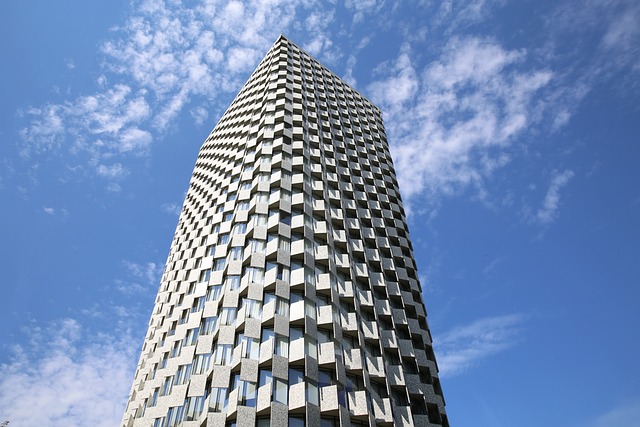First off, AI processes mountains of data faster than you can say “room service.” Traditional methods might rely on historical bookings, but AI dives deeper. Think of it as surfing the internet for relevant info—seasonal events, local happenings, and even social media buzz that might affect traveler behavior. By analyzing this rich tapestry of data, AI can spot patterns that human eyes might miss. It’s like having a crystal ball that whispers insights about future reservations, allowing hotels to optimize their pricing and availability strategies.
Ever notice how prices fluctuate on booking sites? That’s AI at work! It helps hotels adjust their rates based on real-time demand signals, ensuring they don’t miss out on potential revenue. When demand spikes, AI alerts hotel managers to raise prices; when bookings dip, it suggests discounts to attract more guests. Just like a seasoned sailor reading the tides, AI navigates the unpredictable waters of consumer behavior.
Unlocking Precision: How AI Is Revolutionizing Hotel Demand Forecasting
So how exactly is AI transforming hotel demand forecasting? Think of it as a crystal ball that doesn’t just tell the future but guides your every decision. By crunching vast amounts of data—guest reviews, booking patterns, local events, and even weather forecasts—AI algorithms can spot trends that might slip past even the most seasoned hotelier. It’s like having an extra set of eyes that not only sees what’s happening but also interprets it, allowing hotels to adjust strategies on the fly.
And the best part? This isn’t just about predicting how many rooms will be booked. AI dives deep, examining pricing strategies, suggesting optimal rates based on real-time market shifts. It’s akin to having a personal trainer for your hotel’s revenue management, guiding you to push your limits while keeping an eye on the competition.
Ever thought about guest experiences? AI helps personalize offerings by analyzing preferences, ensuring that guests feel like VIPs from the moment they walk in. Instead of just filling rooms, hotels can create tailored experiences, fostering loyalty in a world where options are a click away.
The Future of Hospitality: AI-Powered Insights for Accurate Demand Predictions
How does it work? Picture this: machine learning algorithms analyzing numerous data points—from past booking trends to local event calendars and even weather forecasts. It’s like having a personal assistant that never sleeps, continuously crunching numbers and delivering predictions that can make or break a hotel’s revenue strategy.
What’s even cooler is how these insights aren’t one-size-fits-all. They can adapt in real-time. Let’s say there’s a big sports event trending in town. An AI system can process this influx of interest, adjusting prices and availability instantly, maximizing occupancy rates, and optimizing profits. It’s like riding the wave of demand rather than just going with the flow.
And don’t even get me started on personalized guest experiences! With AI, hotels can anticipate what a guest might want before they even check in. Think about it—when you arrive, your favorite snacks could be waiting in your room, or your preferred pillow type could be on the bed, setting the stage for an unforgettable stay.
Stay Ahead of the Curve: Leveraging AI for Smarter Hotel Demand Forecasts
So, how does this work? Think of AI as your very own crystal ball that analyzes mountains of data—like booking trends, local events, and even weather conditions. Instead of just going with gut feelings or outdated spreadsheets, you get to see patterns emerge right before your eyes. This means you can adjust your room rates dynamically, like adjusting the sails on a boat, catching the right winds to stay ahead.
Have you ever noticed how some hotels get booked up faster than others? That’s the magic of forecasting! With AI, you’re not just guessing what might happen next weekend; you’re predicting with precision. It’s like having a secret weapon at your disposal. By analyzing past behaviors and combining them with real-time data, AI lets you tap into the minds of potential guests. You’ll know when to offer discounts during slow periods or when to jack up the prices for that big music festival happening down the street.
From Data to Decisions: The Role of AI in Enhancing Hotel Demand Accuracy
Think about it: hotels have access to mountains of data, from historical booking trends to local events. However, sifting through this avalanche of information can feel like searching for a needle in a haystack. Enter AI, which acts like a skilled navigator through this complex maze. By analyzing patterns and predicting future behavior, AI helps hotel operators understand when to raise rates during peak seasons or offer discounts during slow periods.
Imagine if your favorite hotel could predict that three months from now, there’s a major concert in town. With AI, hotels can adjust their pricing strategy ahead of time, optimizing their revenue. It’s like having a crystal ball that not only shows the future but helps you make the most of it.
AI doesn’t just enhance the bottom line; it improves the guest experience too. By understanding guest preferences and booking behaviors, hotels can offer personalized services that make you feel special. It’s like having a concierge who already knows your favorite drink before you even step up to the bar.
Navigating Uncertainty: AI Techniques That Transform Hotel Demand Forecasting

Think of AI as having a super-smart assistant at your side, crunching numbers and recognizing patterns faster than you can say “check-in.” It dives deep into historical data, customer behaviors, and even social media trends. By analyzing this rich tapestry of information, it spots the subtle trends that human eyes might miss—like a hawk spotting its prey from a mile high.
Ever wondered how some hotels know the perfect time to run a promotion? AI can predict peak booking periods with uncanny accuracy, allowing hotels to tailor their marketing strategies. It’s like having a crystal ball that reveals the future, helping you adjust your pricing dynamically, optimizing occupancy, and ensuring no room is left empty.
And here’s where things get really exciting! Imagine layering in real-time data, such as local events or weather forecasts. AI doesn’t just stop at historical analysis; it integrates these live insights to refine predictions. It’s like a chef adjusting a recipe mid-cook based on the exact ingredients on hand—always ensuring the dish is just right.
How Machine Learning Is Shaping the Future of Hotel Demand Predictions

Hotels today are swimming in data—from booking patterns to guest reviews, every piece holds a treasure trove of insights. Machine learning algorithms are like well-trained detectives, sifting through this information to spot trends and create accurate forecasts. Think of them as a dynamic crystal ball, revealing not just when a hotel will be bustling with guests, but also what type of amenities those guests might crave.
Ever wondered why some hotel rooms are booked weeks in advance while others sit vacant? Machine learning takes into account countless variables: weather patterns, local events, and even social media buzz. Imagine a machine that knows a famous band is playing nearby next weekend. It can suggest boosting room rates or adding special packages that cater to those concert-goers. It’s like having a savvy friend who always knows the inside scoop!
Moreover, real-time data makes this prediction even sharper. During peak seasons, these algorithms can adjust prices automatically, ensuring hotels remain competitive. It’s like a game of chess where every move is optimized. For hotels, this means fewer empty rooms and happier guests, creating a win-win scenario.
Dynamic Pricing in Action: AI’s Influence on Hotel Demand Accuracy
So, how does AI fit into this picture? Think of AI as your savvy travel buddy who knows exactly when to score the best deals. By analyzing a mountain of data—think search patterns, local events, even weather forecasts—AI can predict when demand for hotel rooms is likely to spike. Imagine the bustling energy of a music festival or a big sports event; hotels know that as soon as those tickets go on sale, travelers will scramble to find a place to stay. AI makes it possible for hotels to adjust their prices in real time, ensuring they capitalize on that surge in demand.
But wait, it gets cooler! Because AI doesn’t just react to demand; it learns from it. It’s like having a personal assistant who becomes smarter every time you hit the road. When a hotel sees how guests respond to certain price points, AI fine-tunes its strategies, optimizing rates in a way that’s almost clairvoyant. This means the prices are not just arbitrary; they’re calculated to match the market’s pulse, allowing hotels to maximize occupancy while also ensuring customers feel they’re getting a fair deal.
Frequently Asked Questions
What Data Sources Do AI Models Use for Accurate Forecasting?
AI models utilize various data sources to enhance forecasting accuracy, including historical data, real-time sensor inputs, social media trends, economic indicators, and domain-specific datasets. By analyzing patterns and correlations in these datasets, models can generate reliable predictions and insights.
How Does AI Enhance Hotel Demand Forecasting Accuracy?
AI improves hotel demand forecasting accuracy by analyzing vast amounts of data, including historical booking patterns, market trends, and external factors like weather and events. By employing machine learning algorithms, AI identifies complex patterns and correlations that traditional methods may overlook. This results in more precise predictions, enabling hotels to optimize pricing, manage inventory effectively, and enhance overall revenue management.
What AI Techniques Are Used for Hotel Demand Predictions?
Various AI techniques are employed to predict hotel demand, including machine learning algorithms such as regression analysis, decision trees, and neural networks. These methods analyze historical booking data, seasonal trends, and external factors like local events and economic indicators to accurately forecast future occupancy rates and optimize pricing strategies.
How Can AI Analyze Market Trends for Better Forecasting?
AI utilizes algorithms and vast amounts of data to identify patterns and trends in market behavior, enabling businesses to make informed predictions. Through machine learning and data analysis techniques, it processes historical data, monitors real-time fluctuations, and recognizes emerging trends, resulting in enhanced accuracy in market forecasting.
How is AI Assisting Hotels in Managing Seasonal Demand Changes?
Artificial intelligence helps hotels optimize operations during seasonal demand fluctuations by analyzing historical data, predicting occupancy rates, and adjusting pricing strategies. AI tools can identify trends, automate dynamic pricing, and enhance marketing efforts, ensuring hotels maximize revenue and maintain guest satisfaction throughout varying demand cycles.